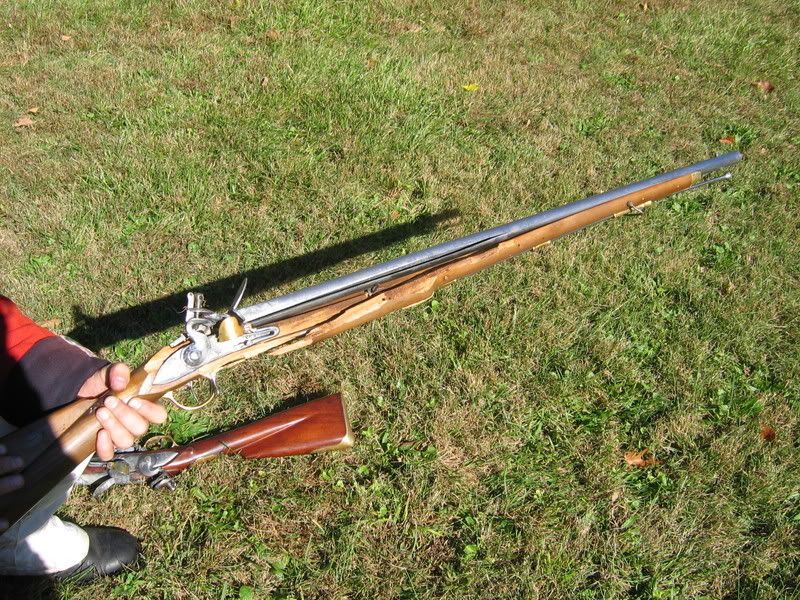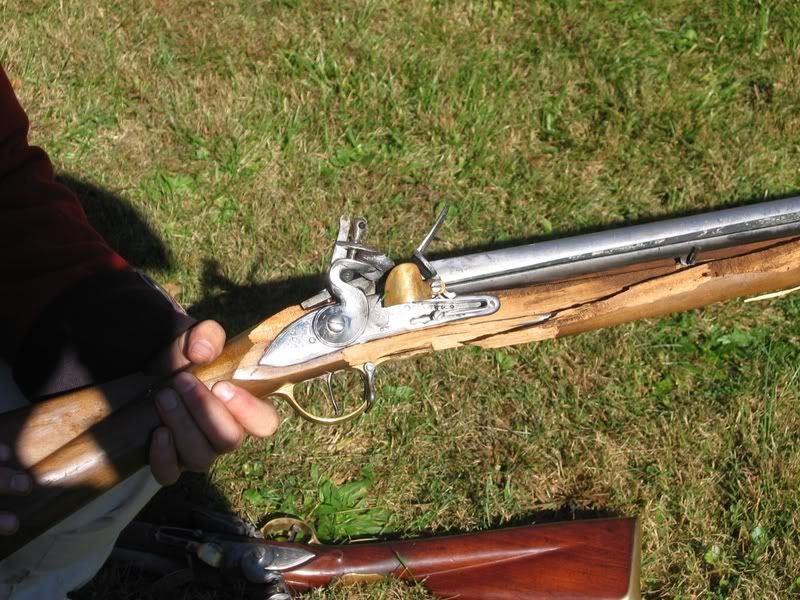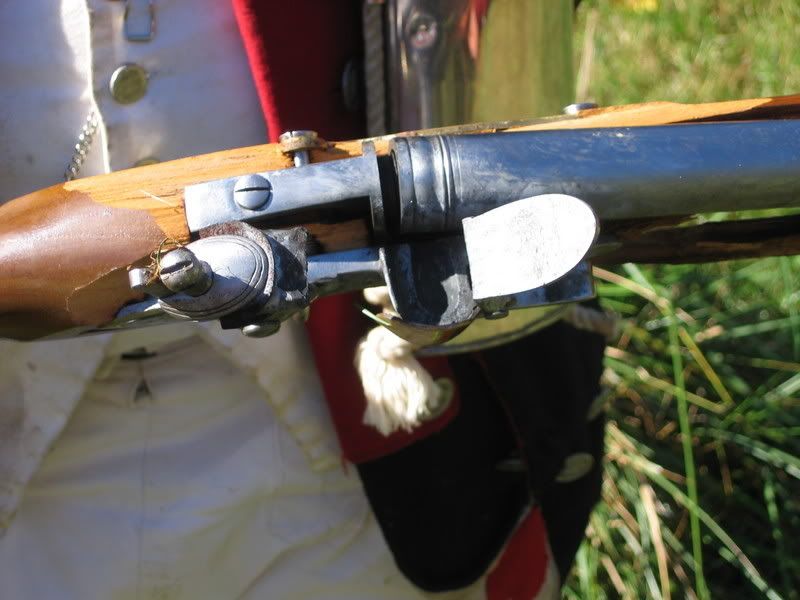Hallo!
Without a definitive investigation and analysis, we have been beset with rumor and speculation about the causes and circumstances of an Indian-made musket blank-fire explosion.
While we wait for factual information, the growing concern or issue, IMHO, is the question what exactly is the "safety" of these Indian or Pakistani imports among us?
I am a bit concerned, maybe prematurely, that the several importers and several more outlets for these 18th and 19th century replicas have not come forward with public postings or comments as to the manufacturing and/or "proofing" of their imported products.
I do believe it is "too early" to expect much, and that the perceived "silence" is just the legitimate state of affairs until factual information comes out.
Freak accident. Owner/operator error. Etc., etc., aside...
In brief and to over-generalize...
Gun barrels are designed to withstand pressure partially due to the grade of steel- their typically being a progression of hardness as well as "limits" on the impurities or "inclusions" permitted in the steel itself (for example ascending Rifle Barrel Grade , Aircraft Grade, and Nuclear Grade).
Typically, a rifle barrel is made of a harder steel, that is extruded into solid rods. The rods are then formed, planed/milled, bored, and rifled.
As far as I know, to cut down on price, the Indians and/or Pakistani are using milder lowergrade steel, with a larger number of inclusions, that is rolled flat, formed round, and then welded to make the barrel.
IMHO, as the steel is rolled, the inclusions get rolled longer, creating potential weak lines in the barrel wall. And when the "tube" is formed, depending upon the quality of the "weld," there is also the potential for separation under reduced or minimal pressures.
And with no proofing, there is no testing under even mild stress.
I say "stress" because failure can be accumulative over time and not instant.
Amid all of the inuendo, speculation, and lack of concrete information, we would not want to see ANY vendor or distributor trying to be of service to the Civil War Community harmed or suffer needlessly.
However, IMHO, those vendors and distributors need to eventually come forward as soon as is possible to prove or reassure us, that their Indian or Pakistani replicas are indeed as safe as a firearm can actually be, and that the lad next to us in line is not holding a grenade excused as being a better bargain than an Italian import?
Others' mileage may vary...
Curt
Without a definitive investigation and analysis, we have been beset with rumor and speculation about the causes and circumstances of an Indian-made musket blank-fire explosion.
While we wait for factual information, the growing concern or issue, IMHO, is the question what exactly is the "safety" of these Indian or Pakistani imports among us?
I am a bit concerned, maybe prematurely, that the several importers and several more outlets for these 18th and 19th century replicas have not come forward with public postings or comments as to the manufacturing and/or "proofing" of their imported products.
I do believe it is "too early" to expect much, and that the perceived "silence" is just the legitimate state of affairs until factual information comes out.
Freak accident. Owner/operator error. Etc., etc., aside...
In brief and to over-generalize...
Gun barrels are designed to withstand pressure partially due to the grade of steel- their typically being a progression of hardness as well as "limits" on the impurities or "inclusions" permitted in the steel itself (for example ascending Rifle Barrel Grade , Aircraft Grade, and Nuclear Grade).
Typically, a rifle barrel is made of a harder steel, that is extruded into solid rods. The rods are then formed, planed/milled, bored, and rifled.
As far as I know, to cut down on price, the Indians and/or Pakistani are using milder lowergrade steel, with a larger number of inclusions, that is rolled flat, formed round, and then welded to make the barrel.
IMHO, as the steel is rolled, the inclusions get rolled longer, creating potential weak lines in the barrel wall. And when the "tube" is formed, depending upon the quality of the "weld," there is also the potential for separation under reduced or minimal pressures.
And with no proofing, there is no testing under even mild stress.
I say "stress" because failure can be accumulative over time and not instant.
Amid all of the inuendo, speculation, and lack of concrete information, we would not want to see ANY vendor or distributor trying to be of service to the Civil War Community harmed or suffer needlessly.
However, IMHO, those vendors and distributors need to eventually come forward as soon as is possible to prove or reassure us, that their Indian or Pakistani replicas are indeed as safe as a firearm can actually be, and that the lad next to us in line is not holding a grenade excused as being a better bargain than an Italian import?
Others' mileage may vary...
Curt










Comment